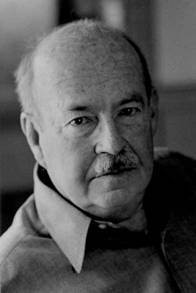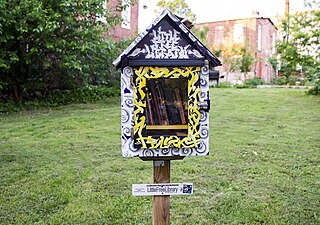Related Research Articles

Social science is the branch of science devoted to the study of societies and the relationships among individuals within those societies. The term was formerly used to refer to the field of sociology, the original "science of society", established in the 19th century. In addition to sociology, it now encompasses a wide array of academic disciplines, including anthropology, archaeology, economics, human geography, linguistics, management science, political science, psychology, and history.

Talcott Parsons was an American sociologist of the classical tradition, best known for his social action theory and structural functionalism. Parsons is considered one of the most influential figures in sociology in the 20th century. After earning a PhD in economics, he served on the faculty at Harvard University from 1927 to 1929. In 1930, he was among the first professors in its new sociology department. Later, he was instrumental in the establishment of the Department of Social Relations at Harvard.

The sociology of knowledge is the study of the relationship between human thought and the social context within which it arises, and of the effects that prevailing ideas have on societies. It is not a specialized area of sociology but instead deals with broad fundamental questions about the extent and limits of social influences on individuals' lives and with the social-cultural basis of our knowledge about the world. Complementary to the sociology of knowledge is the sociology of ignorance, including the study of nescience, ignorance, knowledge gaps, or non-knowledge as inherent features of knowledge-making.

An academic discipline or field of study is a branch of knowledge, taught and researched as part of higher education. A scholar's discipline is commonly defined by the university faculties and learned societies to which they belong and the academic journals in which they publish research.
Social theories are analytical frameworks, or paradigms, that are used to study and interpret social phenomena. A tool used by social scientists, social theories relate to historical debates over the validity and reliability of different methodologies, the primacy of either structure or agency, as well as the relationship between contingency and necessity. Social theory in an informal nature, or authorship based outside of academic social and political science, may be referred to as "social criticism" or "social commentary", or "cultural criticism" and may be associated both with formal cultural and literary scholarship, as well as other non-academic or journalistic forms of writing.

The expression collective behavior was first used by Franklin Henry Giddings and employed later by Robert Park and Ernest Burgess,, Herbert Blumer, Ralph H. Turner and Lewis Killian, and Neil Smelser to refer to social processes and events which do not reflect existing social structure, but which emerge in a "spontaneous" way. Use of the term has been expanded to include reference to cells, social animals like birds and fish, and insects including ants. Collective behavior takes many forms but generally violates societal norms. Collective behavior can be tremendously destructive, as with riots or mob violence, silly, as with fads, or anywhere in between. Collective behavior is always driven by group dynamics, encouraging people to engage in acts they might consider unthinkable under typical social circumstances.

Economic sociology is the study of the social cause and effect of various economic phenomena. The field can be broadly divided into a classical period and a contemporary one, known as "new economic sociology".

The sociology of culture, and the related cultural sociology, concerns the systematic analysis of culture, usually understood as the ensemble of symbolic codes used by a member of a society, as it is manifested in the society. For Georg Simmel, culture referred to "the cultivation of individuals through the agency of external forms which have been objectified in the course of history". Culture in the sociological field is analyzed as the ways of thinking and describing, acting, and the material objects that together shape a group of people's way of life.

Social movement theory is an interdisciplinary study within the social sciences that generally seeks to explain why social mobilization occurs, the forms under which it manifests, as well as potential social, cultural, and political consequences, such as the creation and functioning of social movements.
Randall Collins is an American sociologist who has been influential in both his teaching and writing. He has taught in many notable universities around the world and his academic works have been translated into various languages. Collins is currently the Dorothy Swaine Thomas Professor of Sociology, Emeritus at the University of Pennsylvania. He is a leading contemporary social theorist whose areas of expertise include the macro-historical sociology of political and economic change; micro-sociology, including face-to-face interaction; and the sociology of intellectuals and social conflict. Collins's publications include The Sociology of Philosophies: A Global Theory of Intellectual Change (1998), which analyzes the network of philosophers and mathematicians for over two thousand years in both Asian and Western societies. His current research involves macro patterns of violence including contemporary war, as well as solutions to police violence. He is considered to be one of the leading non-Marxist conflict theorists in the United States, and served as the president of the American Sociological Association from 2010 to 2011.

The sociology of literature is a subfield of the sociology of culture. It studies the social production of literature and its social implications. A notable example is Pierre Bourdieu's 1992 Les Règles de L'Art: Genèse et Structure du Champ Littéraire, translated by Susan Emanuel as Rules of Art: Genesis and Structure of the Literary Field (1996). For a concise overview of the "state-of-the-art" of the sociology of literature, look at Váňa (2020).

Sociology is a social science that focuses on society, human social behaviour, patterns of social relationships, social interaction, and aspects of culture associated with everyday life. It uses various methods of empirical investigation and critical analysis to develop a body of knowledge about social order and social change. While some sociologists conduct research that may be applied directly to social policy and welfare, others focus primarily on refining the theoretical understanding of social processes. Subject matter can range from micro-level analyses of society to macro-level analyses.

Culture is an umbrella term which encompasses the social behavior and norms found in human societies, as well as the knowledge, beliefs, arts, laws, customs, capabilities, and habits of the individuals in these groups.
Jeffrey Charles Alexander is an American sociologist, and one of the world's leading social theorists. He is the founding figure in the school of cultural sociology he refers to as the "strong program".
The performative turn is a paradigmatic shift in the humanities and social sciences that has affected such disciplines as anthropology, archaeology, linguistics, ethnography, history and the relatively young discipline of performance studies. Central to the performative turn is the concept of performance.
Mobilities is a contemporary paradigm in the social sciences that explores the movement of people, ideas and things (transport), as well as the broader social implications of those movements. Mobility can also be thought as the movement of people through social classes, social mobility or income, income mobility.
Jeffrey K. Olick is an American sociologist. Currently, he is William R. Kenan, Jr. Professor of Sociology and History at the University of Virginia. He is also co-president of the Memory Studies Association. Olick is a major figure in cultural sociology and social theory and has made significant contributions to the interdisciplinary field of memory studies.
Cultural studies is a field of theoretically, politically, and empirically engaged cultural analysis that concentrates upon the political dynamics of contemporary culture, its historical foundations, defining traits, conflicts, and contingencies. Cultural studies researchers generally investigate how cultural practices relate to wider systems of power associated with or operating through social phenomena, such as ideology, class structures, national formations, ethnicity, sexual orientation, gender, and generation. Cultural studies views cultures not as fixed, bounded, stable, and discrete entities, but rather as constantly interacting and changing sets of practices and processes. The field of cultural studies encompasses a range of theoretical and methodological perspectives and practices. Although distinct from the discipline of cultural anthropology and the interdisciplinary field of ethnic studies, cultural studies draws upon and has contributed to each of these fields.
The Social Science History Association, formed in 1976, brings together scholars from numerous disciplines interested in social history.
Lynette Patrice Spillman is a sociologist and professor of sociology at the University of Notre Dame, and a Faculty Fellow of the Helen Kellogg Institute for International Studies, as well as the Center for Cultural Sociology, Yale University. She is particularly known for the application of cultural sociology to the sub-fields of political sociology and economic sociology.
References
- ↑ Jacobs, Mark; Spillman, Lynette (2005). "Cultural sociology at the crossroads of the discipline". Poetics. 33 (1): 1–14. doi:10.1016/j.poetic.2005.01.001.
- 1 2 Steinmetz, G (1999). State/Culture: State-Formation after the Cultural Turn. Ithaca, NY: Cornell University Press. pp. 1–2.
- 1 2 3 Steven, Best (2007). Ritzer, George (ed.). "Culture Turn". Blackwell Encyclopedia of Sociology. doi:10.1111/b.9781405124331.2007.x. hdl: 10138/224218 . ISBN 9781405124331 . Retrieved 30 July 2014.
- ↑ Alexander, Jeffrey (1988). "The New Theoretical Movement". In Smelser, N. J. (ed.). Handbook of Sociology . Beverly Hills, CA: Sage Publications. pp. 77–101.
- ↑ Eyerman, Ron (2004). "Jeffrey Alexander and the Cultural Turn in Social Theory". Thesis Eleven|No. 79. pp. 25–30.
- ↑ Bonnell, V. E.; Hunt, L. (1999). Beyond the Cultural Turn. Berkeley: University of California Press.
- ↑ Heather Jones, "As the centenary approaches: the regeneration of First World War historiography." Historical Journal (2013) 56#3 pp: 857-878
- ↑ Jameson, Fredric (1998). The Cultural Turn: Selected Writings on the Postmodern, 1983-1998. Brooklyn: Verso.
- ↑ Woods, M (2005). Rural geography. p. 24.
- ↑ Cloke, P (October 1998). "Country backwater to virtual village? Rural studies and 'the cultural turn'". Journal of Rural Studies. 13 (4): 367–375. doi:10.1016/s0743-0167(97)00053-3.
Finlay Macknay, The way of the lad. 2011